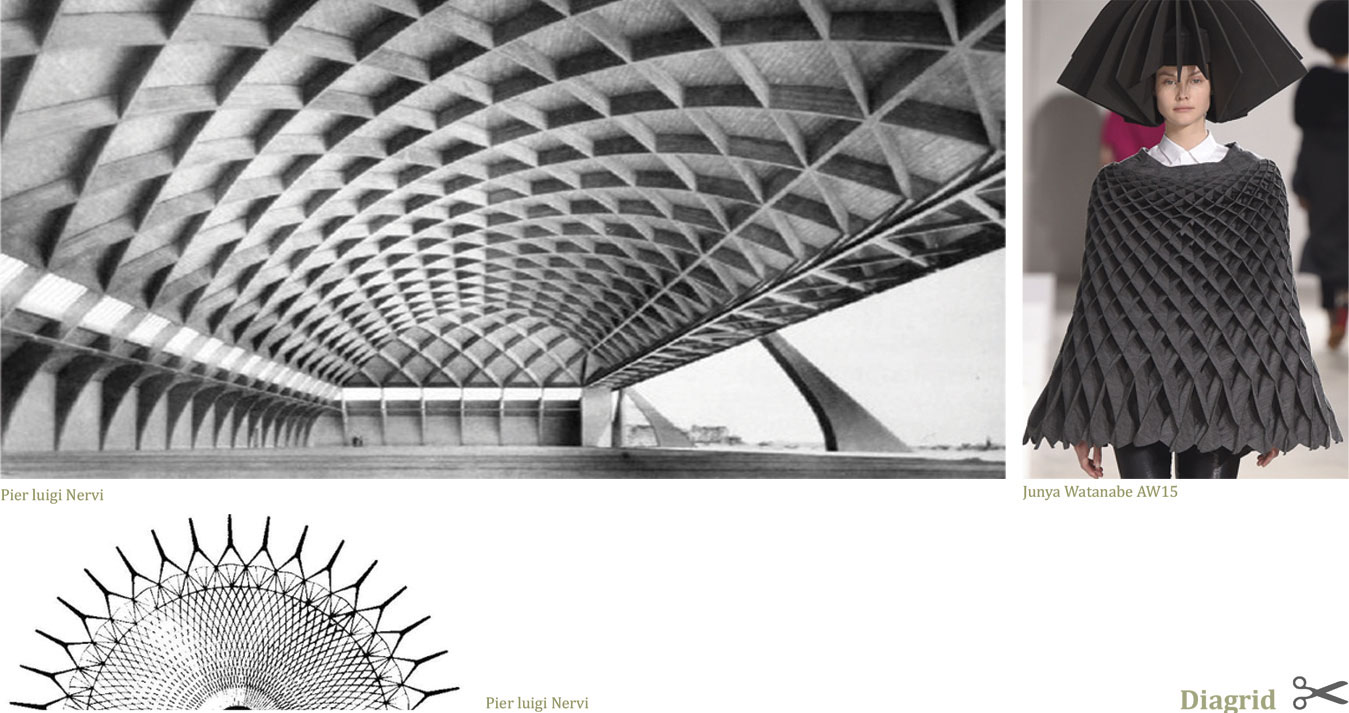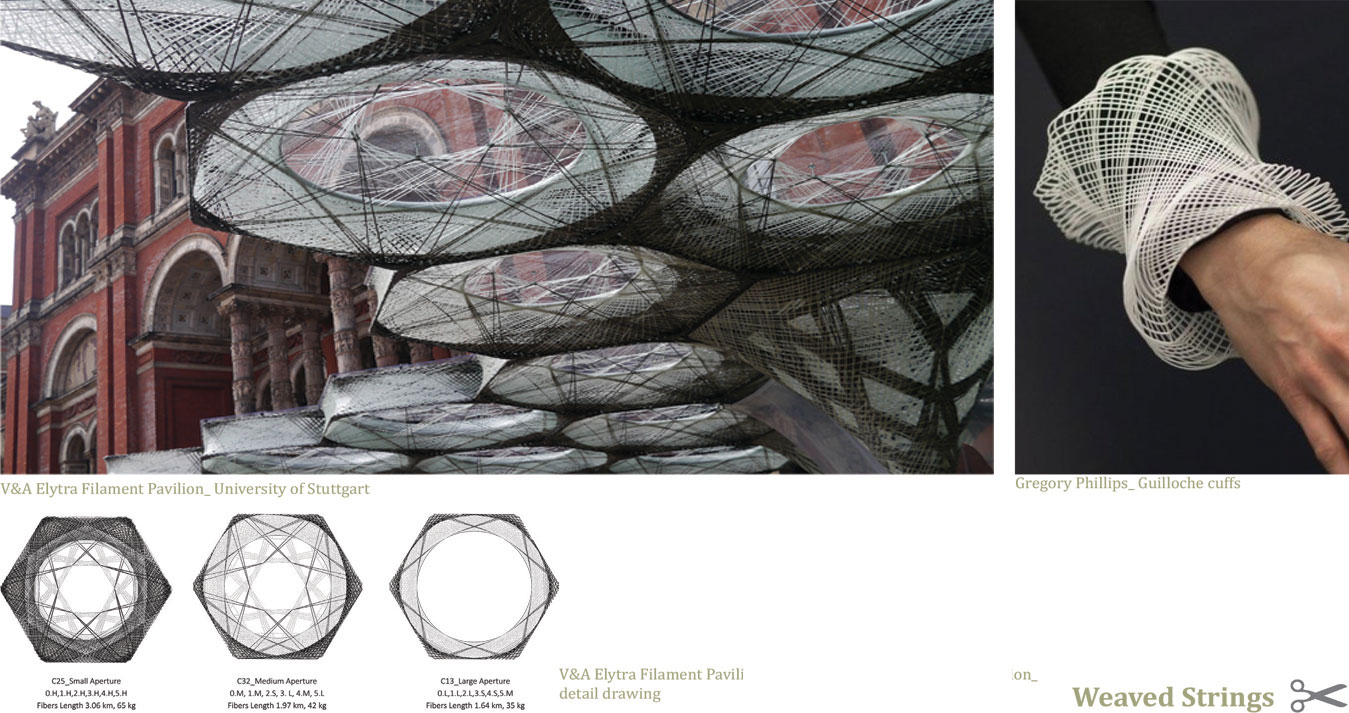RESILIENT SKIN_code, Milan_Italy
Resilient SKIN-code is an AA Visiting School to be set up in Milan, Italy. The School will aim to explore new relationships and links between different disciplines, specifically between Architecture and Fashion design. The research will be focusing on the ergonomic scale, therefore we will look at Architecture in the form of a small scale structure, such a pavilion, Fashion in the form of a wearable construct and both will be explored, in the eyes of sustainable criteria. The result will be something between a shelter and a garment.
During the last two decades, both disciplines have been drawing influences from each other, in terms of form finding processes, digital techniques, digital fabrication processes, material organization and more. These industries are in constant transformation and advancement; hence their relationships are in constant flux and relentless new formation.
If we look closely to these two disciplines, though, we would discover that they are not just iconic activities, they are also systemic activities, and in fact they are mediums to organize relationships and communication between the three distinct worlds we know: spiritual, physical and digital. And they do so mostly engaging in a transversal ecological praxis. They are, in other words, capable to construct not just spaces or garments, but proper cognitive maps.
We are interested to discover if there is a way to combine the knowledge, models and tools of these two disciplines in a sort of ‘cyborgian hybrid’ capable to investigate and deal with resilient scenarios of ecological praxis where, to quote Guattari, ‘the psyche, the socius, and the environment are not regarded as separate’.
In this workshop, we are inviting the students to research this new formation by working collaboratively to construct a 3d manifestation of this new link, as a form of a meaningful intervention, contributing to the city and is site-specific to Milan. This intervention will suggest an efficient way of installation and dismantling, exploring sustainable ideas aligning with environmental considerations, which are in the heart of current global concerns.
Students will be exposed to new advanced computational skills, fabrication tools, form finding and current theoretical thinking, guided by professionals from the academic world and practitioners from both disciplines.
- [status] ongoing
- [location] Milan_Italy
- [type] workshop
- [date] 7th-18th October 2019
- [area] n/a
- [commission type] Architectural Association Visiting School Milan in collaboration with Polytechnic of Milan
- [course directors] Ilaria Di Carlo, Anat Stern
- [tutors] Mattia Santi, Francesca Silvi, Arantza Vilas
RESILIENT SKIN_code, Milan_Italy
Resilient SKIN-code is an AA Visiting School to be set up in Milan, Italy. The School will aim to explore new relationships and links between different disciplines, specifically between Architecture and Fashion design. The research will be focusing on the ergonomic scale, therefore we will look at Architecture in the form of a small scale structure, such a pavilion, Fashion in the form of a wearable construct and both will be explored, in the eyes of sustainable criteria. The result will be something between a shelter and a garment.
During the last two decades, both disciplines have been drawing influences from each other, in terms of form finding processes, digital techniques, digital fabrication processes, material organization and more. These industries are in constant transformation and advancement; hence their relationships are in constant flux and relentless new formation.
If we look closely to these two disciplines, though, we would discover that they are not just iconic activities, they are also systemic activities, and in fact they are mediums to organize relationships and communication between the three distinct worlds we know: spiritual, physical and digital. And they do so mostly engaging in a transversal ecological praxis. They are, in other words, capable to construct not just spaces or garments, but proper cognitive maps.
We are interested to discover if there is a way to combine the knowledge, models and tools of these two disciplines in a sort of ‘cyborgian hybrid’ capable to investigate and deal with resilient scenarios of ecological praxis where, to quote Guattari, ‘the psyche, the socius, and the environment are not regarded as separate’.
In this workshop, we are inviting the students to research this new formation by working collaboratively to construct a 3d manifestation of this new link, as a form of a meaningful intervention, contributing to the city and is site-specific to Milan. This intervention will suggest an efficient way of installation and dismantling, exploring sustainable ideas aligning with environmental considerations, which are in the heart of current global concerns.
Students will be exposed to new advanced computational skills, fabrication tools, form finding and current theoretical thinking, guided by professionals from the academic world and practitioners from both disciplines.









